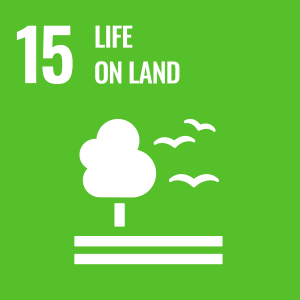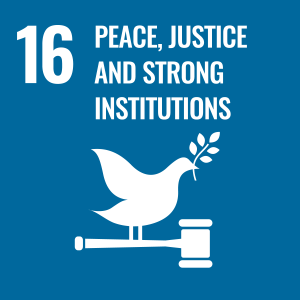
Professor Noreen O'Meara
Academic and research departments
Surrey Centre for International and Environmental Law, Centre for Britain and Europe, Institute for Sustainability, Surrey Law School.About
Biography
Noreen O'Meara is connected to several research centres in Surrey Law School, including Surrey Centre for International and Environmental Law (SCIEL), SCLP, and the Centre for Great Power Competition, and to the Centre for Britain and Europe (CBE). She is a British Academy Mid-Career Fellow advancing her research on national, EU and international dimensions of environmental governance. Since 2025, she has held the Synnott Family Chair in European Union Law at University College Cork (UCC).
She read Law at the University of Cambridge (Corpus Christi College) and UCL (LLM (Public Law) and did her PhD research at Queen Mary, University of London. She has also completed non-degree studies at the European University Institute (EUI), Florence, Université Paris-1 (Panthéon-Sorbonne) and RADA. She previously worked as a research fellow at the British Institute of International and Comparative Law (BIICL) and in practice at the European Commission's Legal Service and the Court of Justice of the European Union (cabinet, Advocate General Sharpston). Her work focused on infringement actions against Member States and cases in a broad range of areas of EU law, including data protection, taxation, extradition and environmental law.
At the University of Surrey, she focused her research on European law and human rights, developing particular expertise on rights and the environment, environmental pollution and the evolution of human rights protection in Europe. She led and developed courses on EU Law, Law and Climate Change, and European Human Rights Law.
Visiting positions include: Sutherland Fellow (UCD), The Institute of European and Comparative Law (IECL, University of Oxford), iCourts (University of Copenhagen), Trinity College Dublin, during which time she joined the Editorial Board of the Irish Journal of European Law (IJEL). She is also a Visiting Professor at Stockholm University, a Research Affiliate at UCD Earth and an Affiliate researcher at the Exeter Centre for Environmental Law (ExCEL).
Affiliations and memberships
News
ResearchResearch interests
- European Union law
- Human Rights law
- Environmental and Climate law
- Courts and Judiciaries
Research interests
- European Union law
- Human Rights law
- Environmental and Climate law
- Courts and Judiciaries
Sustainable development goals
My research interests are related to the following:






Publications
Highlights
O’Meara, N. (2023) ‘Human Rights in the Global Plastics Treaty to protect Health, Ocean Ecosystems and our Climate’ (2023) 38(3) The International Journal of Marine and Coastal Law 480-515.
O'Meara, N. (2025) 'The European Union, Environmental Crime, and Ecocide', Europarättslig tidskrift (forthcoming 2025).
A negotiation process underway to design a global treaty on plastics waste pollution presents a unique opportunity to concretise plastics governance at international level. The mandate to negotiate an internationally binding legal instrument was laid down in UNEA Resolution 5/14, adopted at the UN Environment Assembly (UNEA) 5.2 in March 2022. Setting that mandate was historic in recognising the multiple threats posed by the rising scale of plastics production, consumption and waste for our climate, biodiversity, and emerging concerns for human health. The resolution effectively acknowledged that binding international legal obligations are needed to tackle the complex and diverse problems caused by plastics pollution globally, rather than reliance on voluntary agreements and goals.
The United Nations’ negotiation process to draft an international legally binding instrument on plastics pollution (Global Plastics Treaty) is a historic opportunity to transform plastics governance globally. Even five years ago, the prospect of holding these negotiations was uncertain. The negotiations are taking place amid growing scientific findings revealing the impacts of plastics pollution for human health and ecosystems—and on the significant implications of the global plastics economy for climate change.
The legal orders of the EU and Council of Europe (notably via the European Convention on Human Rights (ECHR)) have shaped the development of European Criminal Law over several decades. While both systems offer protection of fundamental rights, they are at different stages of evolution in human rights terms. On the EU’s part, an emphasis on fundamental rights was initially gradual, both judicially and legislatively. The role and prominence of fundamental rights in EU legislation and case law became more marked from the 1970s, with a swathe of non-discrimination case law directly impacting national laws on, for example, equal pay and sex-discrimination. Over time, as EU competences grew and reached deeper into what are traditionally regarded as constitutionally-sensitive policy areas (including security, asylum and immigration, criminal justice), the associated growth of EU fundamental rights law accelerated. Since the entry into force of the EU Charter of Fundamental Rights (‘Charter’ or ‘CFR’) in 2009, the Court of Justice has taken numerous opportunities to interpret and apply its provisions.
The global plastics pollution crisis has multiple visible and invisible effects on marine, land and air environments. Fossil fuel-based plastics production is projected to triple by 2060, driving a plastics lifecycle that exacerbates climate change, contaminates ecosystems and poses risks to human rights, especially the human right to health. Existing governance measures help tackle plastics waste pollution but cannot effectively address its systemic nature. Drafting a Global Plastics Treaty, due for adoption in 2025, is an opportunity to design ambitious international plastics governance. This article argues for a human rights-based approach to the proposed treaty’s framing and substance by integrating, in particular, the human right to health, supplemented by the human right to a healthy environment. Embedding human rights considerations through a precautionary and preventative approach, shifting responsibility to polluters and showing concern for intergenerational equity would combat plastics pollution, accelerate climate action, protect ocean ecosystems and safeguard human rights.
This paper considers the impact of Brexit on extradition, with particular reference to the UK-Ireland extradition relationship, and the UK's post-Brexit extradition prospects. Reflecting on the evolution of the culture of extradition between Ireland and the UK offers a more nuanced understanding of the dynamics at stake. CJEU perspectives on challenges to the execution of arrest warrants on human rights grounds, in the context of Brexit, and political moves in renegotiating extradition, will be fundamental to the development and success of future arrangements. This paper argues that future UK-Ireland extradition need not be a crisis scenario, if strong efforts are made to mitigate risks. All future options involve elements of regression from the existing EAW framework - drawbacks which are already playing out during transition. It is imperative that judicial and political authorities involved in post-Brexit extradition are pragmatic when discharging duties, and overcoming the problems likely to arise, on whatever basis future extradition arrangements take shape.
This volume examines the state of EU security and justice law after the Lisbon Treaty and the Stockholm Programme. It provides a critical examination of EU law in the fields of immigration, asylum, counter-terrorism, citizenship, fundamental rights and external relations.
EXECUTIVE SUMMARY The legal gap analysis on waste data management represents an important step in addressing waste management challenges in Kenya. The analysis determines the extent to which policies and laws on waste management meet the requirements on waste data and information as set out in the Sustainable Waste Management Act (2022) and the draft Extended Producer Responsibility (EPR) Regulations (2023). In pursuit of this aim, the gaps and recommendations from this analysis are a product of broad and careful consideration of waste management policies and laws by reference to the Sustainable Waste Management Act (2002). The legal gaps from the analysis include: (i) lack of clear and consistent definitions of waste and waste categories; (ii) lack of precise formulation of the duty of care, including a duty to collect data, imposed within the waste management sector at national and county levels; (iii) limited data collection and recording requirements; (iv) inconsistent approach to informal sector between counties; (v) varied provisions on licencing; (vi) unclear purposes of waste data collection and reporting; (vii) lack of transparency; and (viii) gaps in data management under the latest proposed EPR Regulations (2023). Most of these gaps are linked. If there is no consistent definition of waste and types of waste, for example, then the collected data on waste may be neither consistent nor comparable, thereby making data less useful. Similarly, the purpose of data collection and reporting should underpin waste data requirements in the legal landscape and aid transparency, and varied licensing provisions results in inconsistent data collection. The gaps within the legal landscape on waste data requirements can therefore not be fully addressed in siloes. Moreover, the gaps identified are exacerbated by challenges in identifying the most recent and up-to-date documents, which inhibit understanding of licensing and waste data requirements. The varying and inconsistent approaches are also exacerbated by lack of cross-referencing between and clarity in setting out the hierarchy of relevant legislation. The recommendations made throughout the report are mutually supportive and complementary. Waste management laws should be amended to (i) provide for a harmonised definition of ‘waste’ across national and county levels and ensure consistency of data reporting; (ii) impose a duty of care upon all stakeholders in the waste management chain to support the building of an approach which monitors and measures the production and management of waste; (iii) specify and consistently implement and apply the system of reporting waste data in details; (iv) incorporate the informal sector into the formal sector, so that they are also subject to data collection and reporting requirements; (v) transition to a licensing system that aligns data collection and reporting duties; (vi) clearly and consistently state the purpose of the collection and reporting of data; and (vii) in relation to the proposed EPR regulations: clarify data requirements, develop targets for particular types of waste, ensuring consistency in reporting systems, and insert cross-referencing to other laws throughout.
Abstract This article highlights the importance of differentiating between environmental law and climate law in India, and, in doing so, analyses what counts as climate law in that country. It identifies three overarching approaches (trickle-down; Environmental Impact Assessment as climate law; and human rights law and climate change) that the current literature adopts to study and analyse climate law in India. We argue that none of these approaches comprehensively covers climate change mitigation measures adopted in this country. We propose an alternative approach to the analysis of climate law in India, which we call 'administrative layering'. Accordingly, we outline a three-step process to identify and conceptualize climate law in India.
Companies are increasingly seeking to adopt a Circular Economy (CE) approach when aiming for greater corporate sustainability. In Ethiopia, a country rapidly industrializing, a CE approach in line with Ethiopia’s Green Manufacturing Strategy offers businesses a more sustainable and efficient economic approach than linear value chains. This study evaluates approaches towards implementing CE principles into novel business practices, focusing on the crucial role of senior business managers. Drawing on a sample of 145 senior managers of Ethiopian textiles and agro-food processing companies, we analysed their knowledge, attitudes, and practices vis-à-vis CE. The findings show that managers have high levels of knowledge about CE and hold positive attitudes towards it, although their companies’ practices did not reflect this. Logistic regression analysis showed that environmental management training, business circularity strategies, and the type of managerial positions are the major determinants of managers’ willingness to adopt circular practices. A critical finding was that participation in environmental management training and their managerial status negatively affect the willingness to adopt circular practices. Based on these findings, the study offers key recommendations focused on the potential to build CE models at the corporate level in developing countries, such as Ethiopia, through policy change and improved education and training.
Protocol 16 ECHR will provide for an extension of the advisory jurisdiction of the European Court of Human Rights (ECtHR), enabling highest national courts to request advisory opinions on questions of principle concerning the interpretation of the European Convention on Human Rights (ECHR) or its Protocols. This extension of the ECtHR’s advisory jurisdiction aims to achieve two goals: a reduction in the ECtHR’s excessive docket, and the enhancement of dialogue between the ECtHR and (highest) national courts. While the aims of this reform initiative are laudable, we argue that Protocol 16 is likely to fail to achieve its objectives. Our analysis suggests that rather than facilitating the Court’s adjudicatory function, extended advisory jurisdiction has the potential to impact on the Court’s constitutionalist function in a manner which can be better achieved through the Court’s contentious cases. The burden this procedure will place on the Court’s already overstretched resources would risk delays to contentious cases and potentially undermine judicial comity should requests for advisory opinions be declined. Furthermore, evidence of ‘constructive’ dialogue between highest national courts and the ECtHR is emerging in contentious cases without the need for an extended advisory opinions mechanism. Rather than achieving its objectives, Protocol 16 risks exacerbating the Court’s backlog and nullifying the positive effects of advisory opinions on dialogue.



